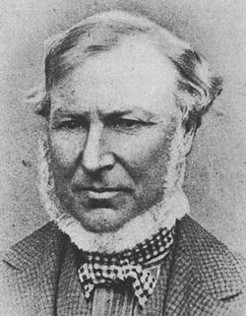
Traralgon is a town located in the east of the Latrobe Valley in the Gippsland region of Victoria, Australia. The urban population of Traralgon at the 2016 census was 25,485. It is the largest and fastest growing city in the greater Latrobe Valley area, which has a population of 74,170 at June 2016 and is administered by the City of Latrobe.

Morwell is a town in the Latrobe Valley area of Gippsland, in South-Eastern Victoria, Australia approximately 149 km (93 mi) east of Melbourne.
No may refer to one of these articles:

The Pama–Nyungan languages are the most widespread family of Australian Aboriginal languages, containing 306 out of 400 Aboriginal languages in Australia. The name "Pama–Nyungan" is a merism: it derived from the two end-points of the range: the Pama languages of northeast Australia and the Nyungan languages of southwest Australia.

Macedonia most commonly refers to:

The Gippsland Lakes are a network of coastal lakes, marshes and lagoons in East Gippsland, Victoria, Australia covering an overall area of about 354 km2 (137 sq mi) between the rural towns of Lakes Entrance, Bairnsdale and Sale. The largest of the lakes are Lake Wellington, Lake King and Lake Victoria. The lakes are collectively fed by the Avon, Thomson, Latrobe, Mitchell, Nicholson and Tambo Rivers, and drain into the Bass Strait through a short canal about 2 km (1.2 mi) southwest of Lakes Entrance town centre.
The Gunaikurnai or Gunai/Kurnai people, also referred to as the Gunnai or Kurnai, are an Aboriginal Australian nation of south-east Australia. They are the Traditional Custodians of most of present-day Gippsland and much of the southern slopes of the Victorian Alps. The Gunaikurnai nation is composed of five major clans. Many of the Gunaikurnai people resisted early European squatting and subsequent settlement during the nineteenth century, resulting in a number of deadly confrontations between Europeans and the Gunaikurnai. There are about 3,000 Gunaikurnai people alive today, predominantly living in Gippsland. The Gunaikurnai dialects are the traditional language of the Gunaikurnai people, although there are very few fluent speakers today.

The Avon River is a perennial river of the West Gippsland catchment, located in the West Gippsland region, of the Australian state of Victoria. The Avon, forms an important part of the Latrobe sub-catchment, draining the south eastern slopes of the Great Dividing Range, to form the Gippsland Lakes.
The Boonwurrungpeople, are an Aboriginal people of the Kulin nation, who are the Traditional Owners of the land from the Werribee River to Wilsons Promontory, Victoria, Australia. Their territory includes part of what is now the city and suburbs of Melbourne. Before British colonisation, they lived as all people of the Kulin nation lived, sustainably on the land, for tens of thousands of years. They were called the Western Port or Port Philip tribe by the early settlers, and were in alliance with other tribes in the Kulin nation, having particularly strong ties to the Wurundjeri people.

Angus McMillan was a Scottish-born explorer, pioneer pastoralist, and perpetrator of several of the Gippsland massacres of Gunai people.
The Gippsland massacres were a series of mass murders of Gunai Kurnai people, an Aboriginal Australian people living in East Gippsland, Victoria, committed by European settlers and the Aboriginal Police during the Australian frontier wars.

The Gunaikurnai or Gunai/Kurnai language, also spelt Gunnai, Kurnai, Ganai, Gaanay, or Kurnay KUR-nye) is an Australian Aboriginal dialect cluster of the Gunaikurnai people in Gippsland in south-east Victoria. Bidawal was either a divergent dialect or a closely related language.
The Wentworth River is a perennial river of the Mitchell River catchment, located in the East Gippsland region of the Australian state of Victoria.
Eagle Point is a small town in Victoria, Australia within the Shire of East Gippsland on the Gippsland lakes, mostly on Lake King. It is known for its bushland and tourism. The top of the red limestone cliff by the Mitchell River offers unparalleled vista of the East Gippsland low country and Mitchell River silt jetties, stretching out for miles. Eagle Point is a place associated with the Bushy Park massacres of local Gunai Aboriginal people. 1840-41, Angus McMillan and his men killed an unknown number of Gunai people in skirmishes during "the defence of Bushy Park". Afterwards, in the mid to late 1840s, Eagle Point was the headquarters for the Border Police under Commissioner Tyers. This force in conjunction with the Native Police force based at nearby Boisdale conducted regular punitive raids upon Gunai camps across the region.
The Wonnangatta River is a perennial river of the Mitchell River catchment, located in the Alpine and East Gippsland regions of the Australian state of Victoria.
The Wongungarra River is a perennial river of the Mitchell River catchment, located in the Alpine region of the Australian state of Victoria.
The Crooked River is a perennial river of the Mitchell River catchment, located in the Alpine region of the Australian state of Victoria.
The Braiakaulung are an Indigenous Australian people, one of the five tribes of the Gunai/Kurnai nation, in the state of Victoria, Australia. They were recognized by Norman Tindale as an independent tribal grouping.
The Tatungalung are an indigenous Australian people of the state of Victoria. They are often, together with the Bratauolung, Braiakaulung, Brabiralung and Krauatungalung classified as belonging to one nation, the Gunai/Kurnai, though this typology has been thought, by Norman Tindale, to be an artificial construct.

Veronica Gorrie is an Aboriginal Australian writer. She is a Krauatungalang Gunai woman. Her first book, Black and Blue: A memoir of racism and resilience, a memoir reflecting on her Aboriginality and the decade she spent in the police force, was released in 2021. Black and Blue won Australia's richest literary award, the Victorian Prize for Literature, in 2022.








